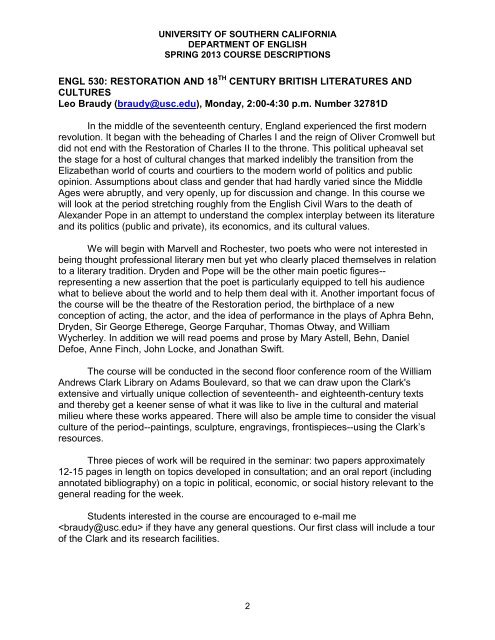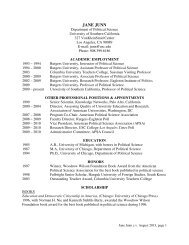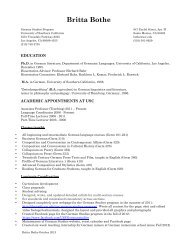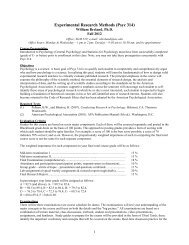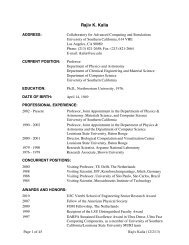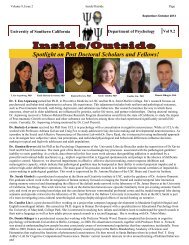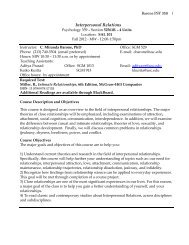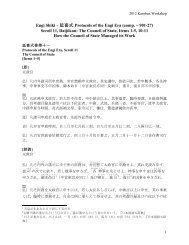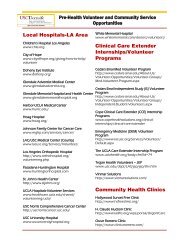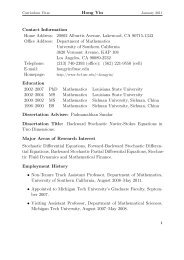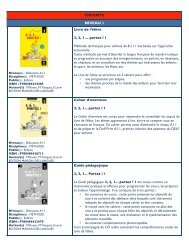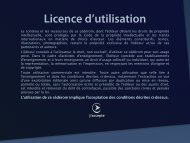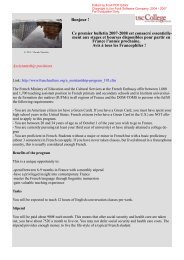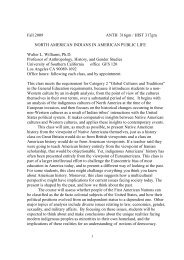ENGL 501: HISTORY OF LITERARY AND CULTURAL THEORY
ENGL 501: HISTORY OF LITERARY AND CULTURAL THEORY
ENGL 501: HISTORY OF LITERARY AND CULTURAL THEORY
Create successful ePaper yourself
Turn your PDF publications into a flip-book with our unique Google optimized e-Paper software.
UNIVERSITY <strong>OF</strong> SOUTHERN CALIFORNIA<br />
DEPARTMENT <strong>OF</strong> <strong>ENGL</strong>ISH<br />
SPRING 2013 COURSE DESCRIPTIONS<br />
<strong>ENGL</strong> 530: RESTORATION <strong>AND</strong> 18 TH CENTURY BRITISH LITERATURES <strong>AND</strong><br />
CULTURES<br />
Leo Braudy (braudy@usc.edu), Monday, 2:00-4:30 p.m. Number 32781D<br />
In the middle of the seventeenth century, England experienced the first modern<br />
revolution. It began with the beheading of Charles I and the reign of Oliver Cromwell but<br />
did not end with the Restoration of Charles II to the throne. This political upheaval set<br />
the stage for a host of cultural changes that marked indelibly the transition from the<br />
Elizabethan world of courts and courtiers to the modern world of politics and public<br />
opinion. Assumptions about class and gender that had hardly varied since the Middle<br />
Ages were abruptly, and very openly, up for discussion and change. In this course we<br />
will look at the period stretching roughly from the English Civil Wars to the death of<br />
Alexander Pope in an attempt to understand the complex interplay between its literature<br />
and its politics (public and private), its economics, and its cultural values.<br />
We will begin with Marvell and Rochester, two poets who were not interested in<br />
being thought professional literary men but yet who clearly placed themselves in relation<br />
to a literary tradition. Dryden and Pope will be the other main poetic figures-representing<br />
a new assertion that the poet is particularly equipped to tell his audience<br />
what to believe about the world and to help them deal with it. Another important focus of<br />
the course will be the theatre of the Restoration period, the birthplace of a new<br />
conception of acting, the actor, and the idea of performance in the plays of Aphra Behn,<br />
Dryden, Sir George Etherege, George Farquhar, Thomas Otway, and William<br />
Wycherley. In addition we will read poems and prose by Mary Astell, Behn, Daniel<br />
Defoe, Anne Finch, John Locke, and Jonathan Swift.<br />
The course will be conducted in the second floor conference room of the William<br />
Andrews Clark Library on Adams Boulevard, so that we can draw upon the Clark's<br />
extensive and virtually unique collection of seventeenth- and eighteenth-century texts<br />
and thereby get a keener sense of what it was like to live in the cultural and material<br />
milieu where these works appeared. There will also be ample time to consider the visual<br />
culture of the period--paintings, sculpture, engravings, frontispieces--using the Clark’s<br />
resources.<br />
Three pieces of work will be required in the seminar: two papers approximately<br />
12-15 pages in length on topics developed in consultation; and an oral report (including<br />
annotated bibliography) on a topic in political, economic, or social history relevant to the<br />
general reading for the week.<br />
Students interested in the course are encouraged to e-mail me<br />
if they have any general questions. Our first class will include a tour<br />
of the Clark and its research facilities.<br />
2


